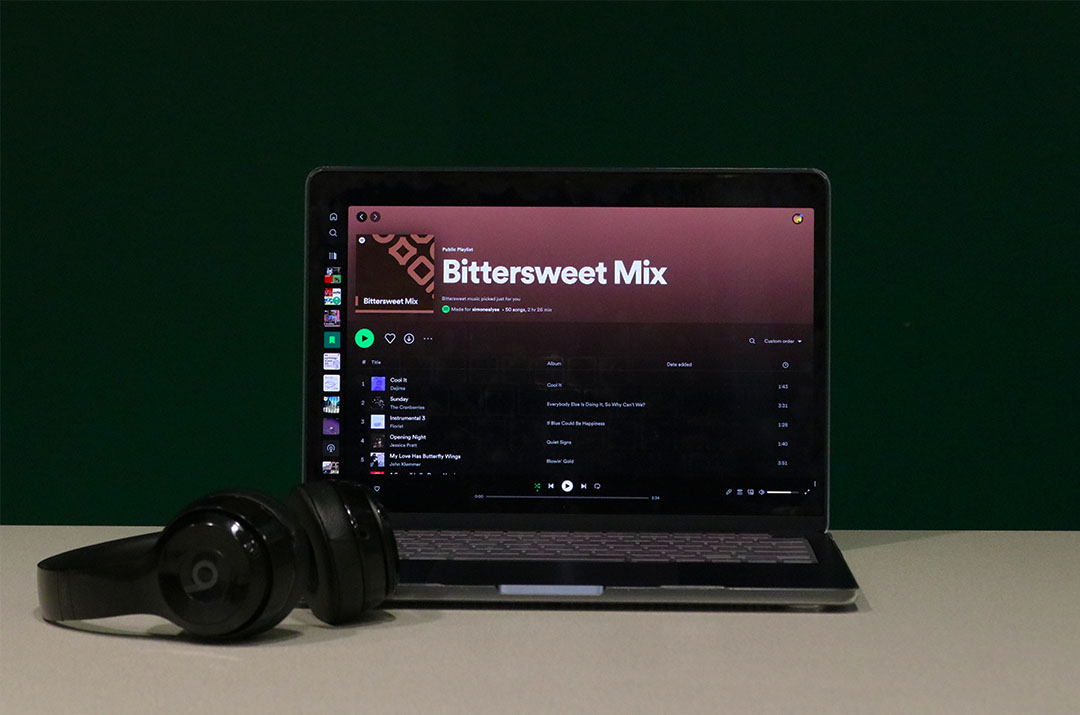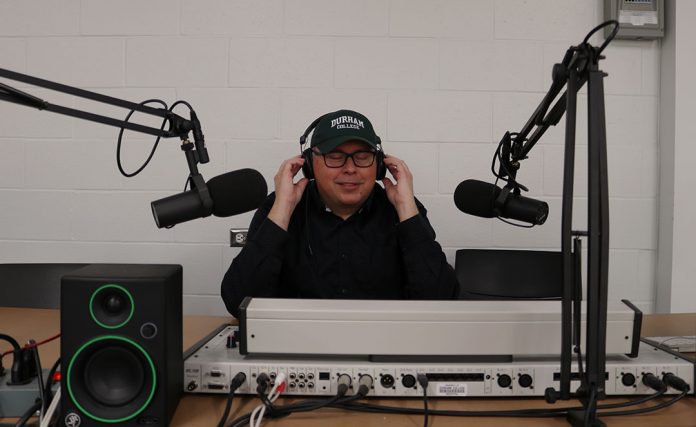For Erin Costello, a 20-year-old student at Durham College, music has always had a big impact on her life. From learning to play the piano at the age of four, to going into the music business program and working at a café because of the type of music they play.
Costello is constantly turning to music. “Whatever I’m feeling, I usually try to find the song that goes with that and can help enhance the mood,” she says.
She’s not alone. Studies have found that music can have an array of benefits, including helping people process emotions, relax, boost their overall mood and even reduce pain.
A recent study led by Canadian researchers at McGill University found that people’s preferred music can lower feelings of unpleasantness and pain intensity.
Published in Frontiers in Pain Research, the study is one of the first to thoroughly investigate the contribution of preference and emotion to music-induced hypoalgesia. Hypoalgesia is a decrease in pain in response to a stimulation that causes pain.
Their findings could play a vital role towards optimizing music-based pain therapies.
“We also found that emotional responses play a very strong role in predicting whether music will have an effect on pain,” says Darius Valevicius, a doctoral student at the Université de Montréal.
This study focused on what could cause hypoalgesia. To investigate this, the participants received moderately painful thermal stimuli to the inner forearm, while simultaneously listening to music excerpts.
The findings show that the participants’ favourite music reduced pain intensity much more than unfamiliar relaxing music. Researchers compared the mean values for music pleasantness, emotional arousal and chills.
The music selected by the participants had higher average ratings in all three categories compared to the generic relaxing music.
The researchers also found that the reduction in pain is most likely not related to the distraction or presence of a sound stimulus. They came to this conclusion by using scrambled music, which sounds similar to regular music, but it does not contain its meaningful structure.

For Tahira James, a 20-year-old music business student at Durham, music has proven beneficial in boosting her overall mood.
“When I’m stressed I turn to music, or when I’m trying to calm down or anything or trying to even be happy,” she says. “It’s just easy to put on music and have it be a source of comfort.”
James says listening to music also allows her to deal with her emotions. “I’d say music is very much like if anything’s wrong, just go to music.”
Ann-Emilie Ngoyi, another music business student, says she’s constantly turning to music to help her through her day. “It’s kind of like a crutch, I guess you would say,” she says. “When I wake up I listen to it, when I take a shower I listen to it, literally music all day, every day, even in class.”
Another important finding from McGill’s study was the connection between musical chills and pain reduction. Although there is a lack of research on musical chills, for some people they can be tingling sensations, shivers or goosebumps.
The researchers assigned themes to the participant’s favourite music to better understand if certain themes had more of a pain-decreasing effect. The four themes included, energizing/activating, happy/cheerful, calming/relaxing and moving/bittersweet.
“We found that reports of moving or bittersweet emotional experiences seem to result in lower ratings of pain unpleasantness, which was driven by more intense enjoyment of the music and more musical chills,” says Valevicius.
James and Ngoyi both say they have experienced musical chills many times while listening to energizing or activating music.
For James, she often experiences it when listening to a new artist that she likes. “It’s just a feeling that you get, and I definitely feel like, whoa this is different,” she says.
Ngoyi says she experiences musical chills very often while mostly listening to energetic music because she enjoys dancing as well.
For her it’s an entire body experience. “I guess I daydream about this, but if humans could do this while listening to music, I would levitate,” says Ngoyi.
She also associates a lot of her favourite childhood memories with music. “I would say one of my most profound memories is when we were at family get-togethers, there’s always music around and you see people dancing and singing along,” says Ngoyi.
Costello experiences similar feelings of nostalgia with music and her childhood. “I used to have a CD player growing up, and so I would always go to the store with my sisters and get a CD,” she says. “We’d flip through the booklets together and read the lyric book.”
While research around music and the various benefits it can provide is still ongoing, it’s clear that it can have beneficial effects on pain reduction, mood elevation and emotional processing.
For Costello, music means so much to her that she’s always known she wanted to pursue a career that involves music. “I’ve kind of always thought I would go somewhere in music,” she says. “I knew that when I was looking at places to apply to after school, nothing really interests me as much as music did.”




